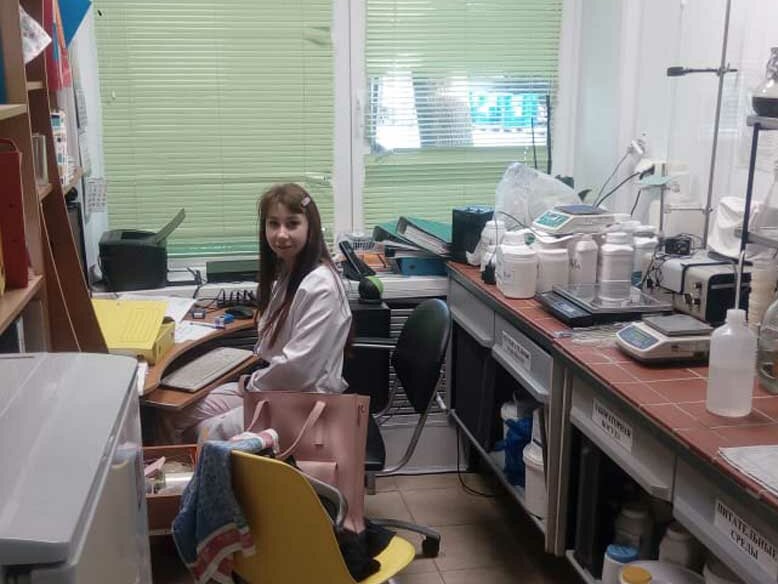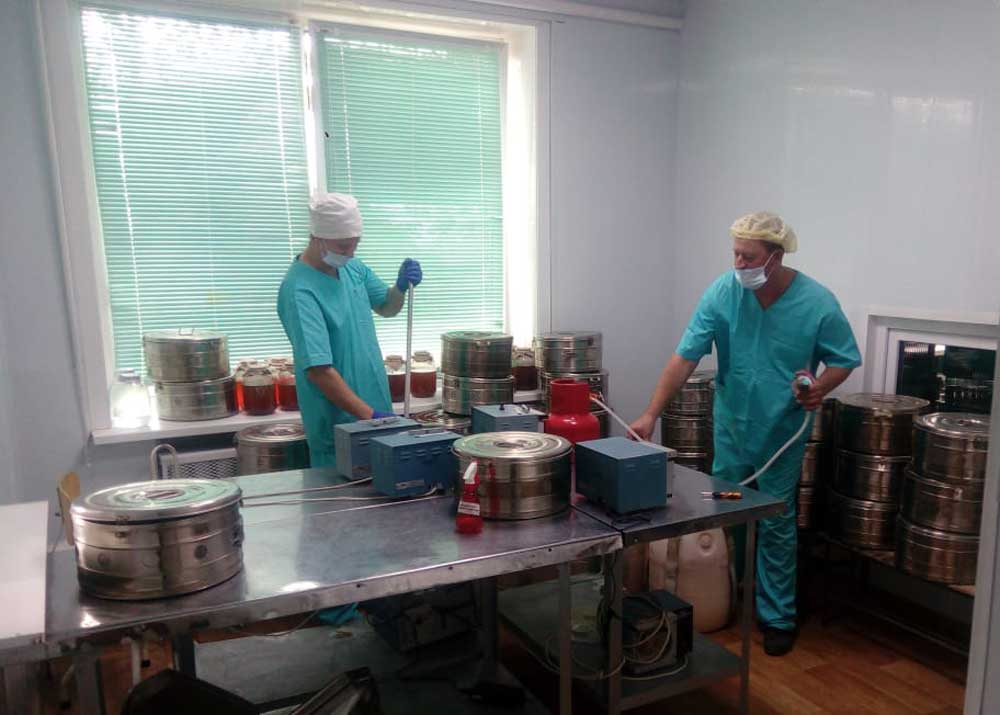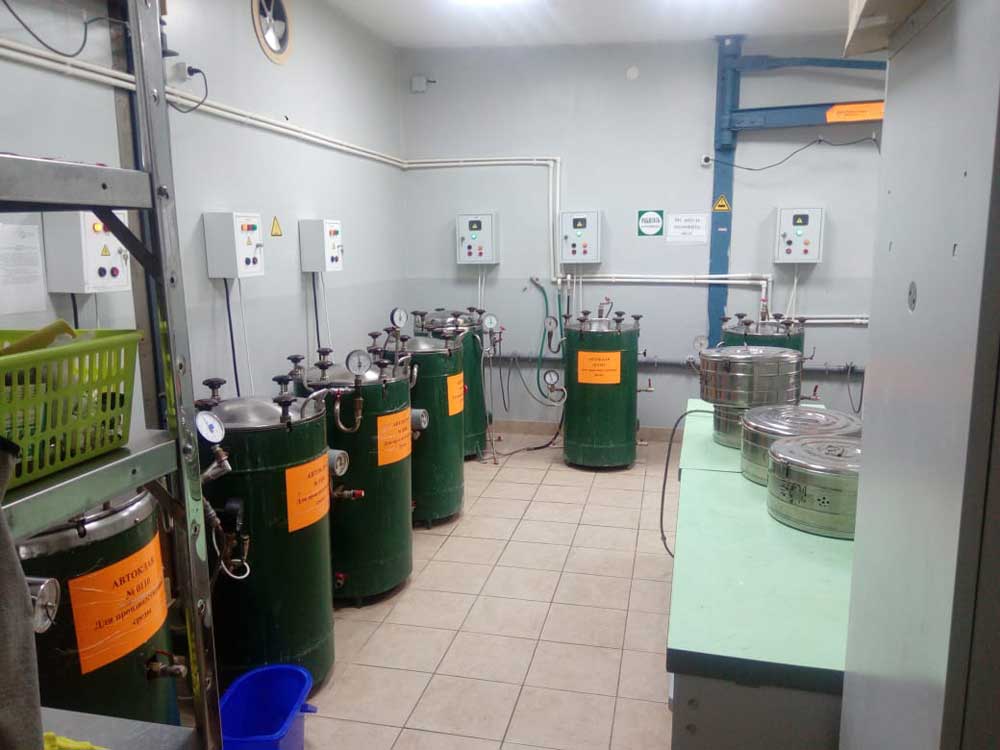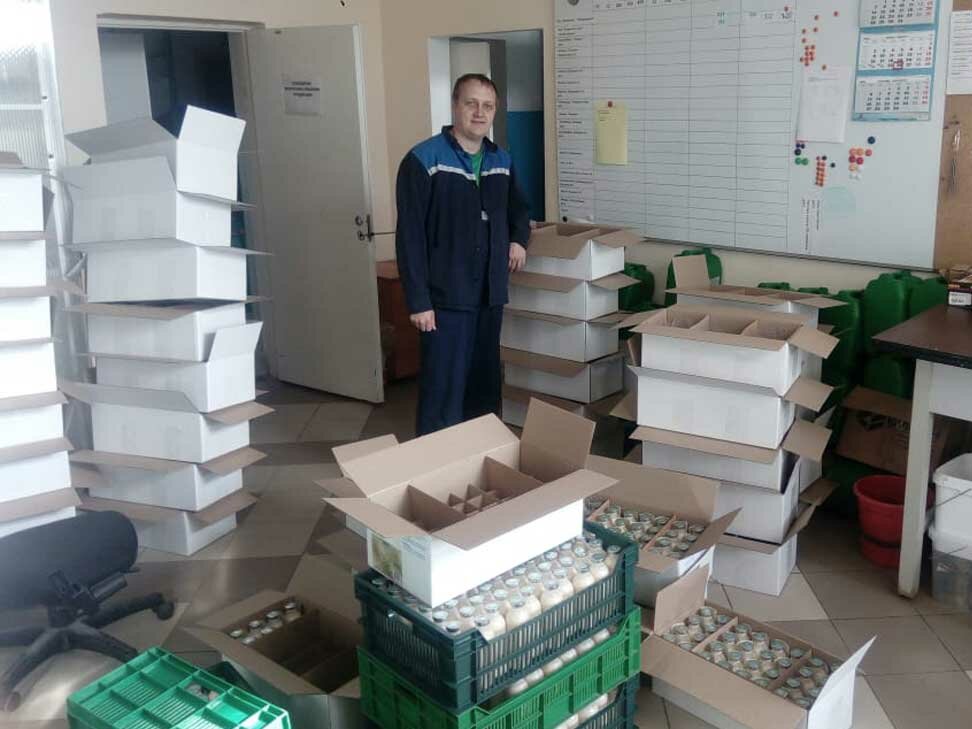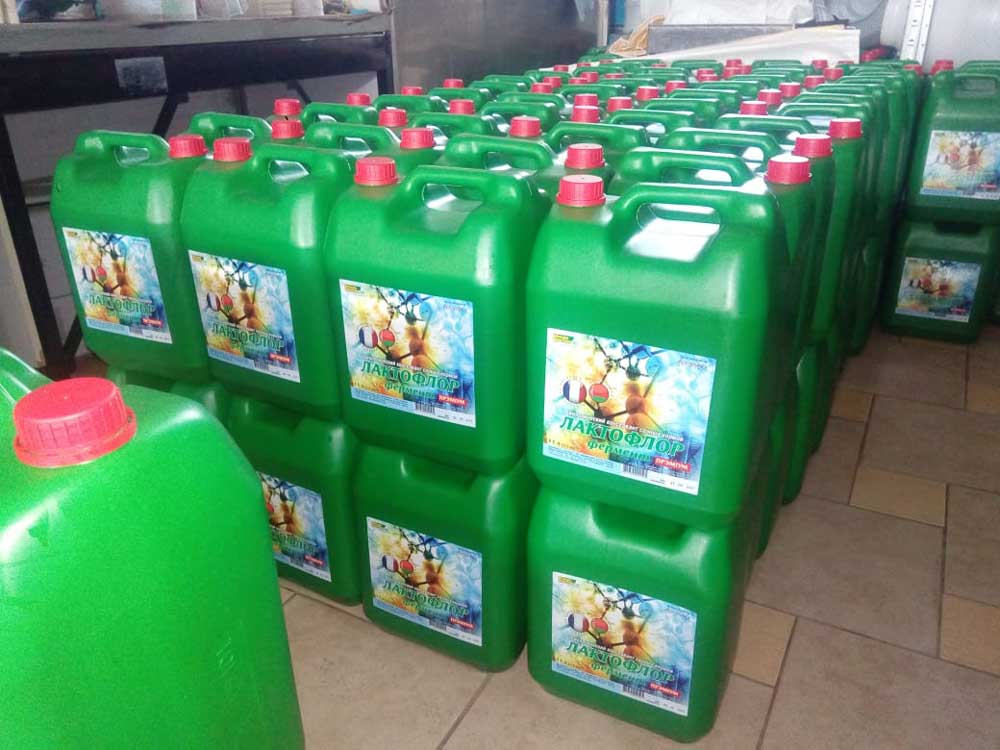Dmitrii Davidiuk: Microbiological products for farming from Belarus
Interview by Erminia Ciarleglio, DLG
As a member of DLG since 2019, Dmitrii Davidiuk follows DLG's agricultural news on weekly basis. His company JSC Microbiotics (JSC Микробиотики) is a biotechnology factory, founded in 2009 in Belarus, near the city of Vitebsk. The company manufactures a wide range of microbiological products for agriculture, such as pure microbiological cultures Lactobacillus sp for fodder preservation, Thrichodermasp for field application, Rhizobium for seed treatment and many others. Total annual production of pure crops is about 60-80 metric tons per year.
Mr. Davidiuk, please introduce your company.
We are a medium sized company with 8 full-time employees: four specialists and four support personnel. Our production is housed in two buildings of about 500 square meters and some auxiliary warehouses. We have a license to manufacture food, feed and veterinary products.
We have a real experience selling our product in Belarus, Russia and Ukraine and export more than half of our products to the Russian Federation. We had plans to work also in the EU, but due to COVID had to put it on hold.
What rules that must be observed in Belarus when manufacturing microbiological products?
Our company sells products mainly in Belarus and the Russian Federation. Both countries have rules of production control according to the «final purpose of consumption», therefore, microbiological products from the same microorganisms for veterinary and food industries will be regulated and controlled by different institutions and must meet different standards and requirements.
Generally speaking, all of our microbiological products fall under control in the following areas:
- Pure cultures of microorganisms for seed treatment require a separate state registration of each product in the Russian Federation and the Republic of Belarus. Control is carried out in the Russian Federation by the Federal Service for Veterinary and Phytosanitary Supervision, and in the Republic of Belarus by a department under the Ministry of Agriculture. Licenses and permits from other countries of the Customs Union are not recognized and there is no common registration system.
- Pure cultures of microorganisms for animals for veterinary use (for example, probiotics for animals) require a manufacturing license and state registration in the Republic of Belarus and the Russian Federation (i.e., each country requires its own license). Control is carried out by the veterinary services in respective countries.
- Pure cultures of microorganisms for food purposes, i.e., parapharmaceuticals or food supplements, require a state registration of each drug and a permission from the local authorities responsible for sanitary and epidemiological production control. However, in this case, there is a common system within the Customs Union, i.e., the documentation and permits obtained in one of the countries of the Customs Union are accepted by all other countries of the Customs Union.
- Pure cultures of microorganisms for fodder purposes (e.g., Lactobacillus for preparation of silage for animals) require state registration both in the Republic of Belarus and in the Russian Federation. There is a general system of recognition of state registrations.
- If pure cultures of microorganisms are manufactured for the purposes of further industrial processing or usage as raw materials, no license is required and no control is carried out neither in the Republic of Belarus nor in the Russian Federation.
How is the harmlessness of plant protection products ensured?
The procedure of state registration of plant protection products (PPPs) in the Russian Federation and the Republic of Belarus requires a toxicological assessment report on the impact of the drug on target organisms: fish, insects, warm-blooded animals, etc. Such procedure is necessary both in the Russian Federation and in the Republic of Belarus.
This report should be obtained in the research institute having state accreditation for this type of work. Without this research work and a positive response from the Research Institute, the further procedure of state registration and inclusion in the register of "approved PPPs " is not carried out. And in this case, the documents of the countries of the Customs Union are not recognized by each other and will be required to pass such a procedure in each country where it is planned to sell the product.
It should be taken into account that the Russian Federation requires to test PPPs for at least two field seasons, and therefore the registration usually takes 3-4 years. In reality, the registration procedure for PPPs does not control those actual batches of PPPs that are sold on the market, which, according to our observations, leads to a large proportion of counterfeit products on the market.
Specifically for Russia, there is also a possibility of accelerated testing and state registration, through affiliated commercial firms.
What do you expect for the agricultural sector in Belarus in the next ten years?
At the moment the situation is difficult, as we are witnessing stagnation of the market in Belarus. I believe that the stagnation trend in this market will continue in the future as well. Crop yields will decrease, the power capacity of the agricultural machine park will decrease, and the age of machinery will increase. The credit load of agricultural producers will grow significantly; although the real credit load is not known (this data is not publicly available), it is very high. I think there will be a slow return to the extensive model of agriculture and a slide towards further decline, without dramatic changes.
Most of the agricultural producers in Belarus are state-owned, so bankruptcy of economically inefficient farms is impossible. Furthermore, the last 10-20 years have seen the consolidation of financially successful companies by taking over their financially unprofitable counterparts until the financial burden of the parent company becomes so high that it becomes unprofitable. Thus, instead of the tendency to fragment large agricultural producers into farms, there is a reverse tendency to create large agricultural holdings. This in turn will lead to the monopolization of the market, degradation of the lower level of management and reduction of wages for the workforce involved. This has already happened in the Russian Federation as well.
Your company is quite multifaced. What is your strategy?
Our company is multifaced because most of our products are in seasonal demand. Our strategy is also affected by the fact that an average term of payment of a contract is up to 6 months, and the difficulty of collecting overdue payments in the Republic of Belarus and the Russian Federation. Our business strategy is to diversify and strengthen our position on the markets and to minimize country risks. Thus, we have to maintain different types of products and focus on different market segments.
And what are your goals for your company?
Our main goal is to enter foreign markets, especially the EU, although at the moment, this is greatly complicated by political events. Belarus is an ideal country for manufacturing products with a high share of manual labor due to good climate, access to resources and availability of inexpensive labor. Therefore, we are looking for niche products that we could sell in the EU. We are looking at the production of not only final products, but also intermediate products that involve a high share of manual labor or processes that are difficult to automate.




